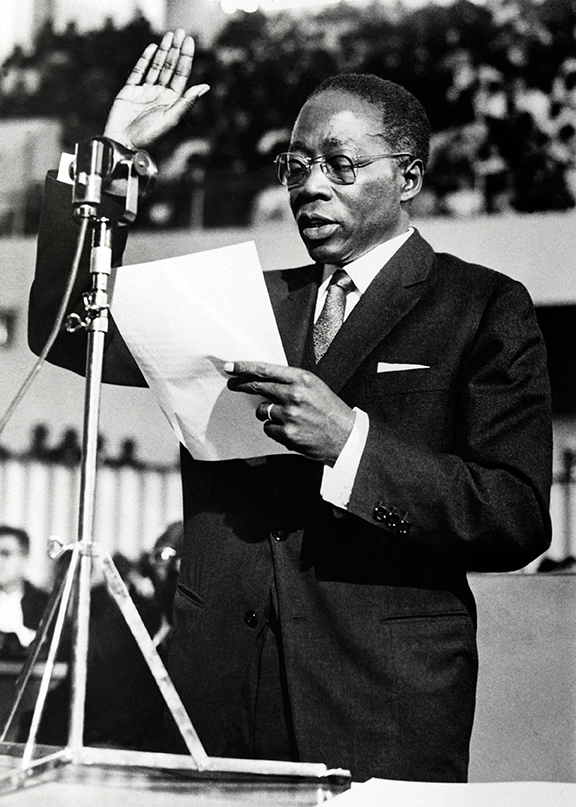Léopold Sédar Senghor
Léopold Sédar Senghor was an intellectual, a writer, a scholar, a statesman and the first president of Senegal. He wrote Senegal’s national anthem and said he considered himself first and foremost a poet.
But his writings indicate that he was, above all other things, an African.
Senghor was born in 1906 in the town of Joal in coastal Senegal. He moved to a boarding school when he was 8 and quickly established himself as a dedicated student and scholar. After secondary school, he won a partial scholarship to study in France. His trip to France began, as he put it, “16 years of wandering.”
After graduating from the University of Paris, he stayed in France, where he taught and continued to study. But despite his accomplishments, he still experienced the ugliness of racism. It was during this time that he and other black intellectuals in Europe came up with the word “négritude,” turning the racial slur négre into a positive statement about Africans. Négritude came to symbolize the celebration of African history, the embracing of traditional African culture and society, and the rejection of colonialism and racism.
In 1939, he was drafted into the French Army — he had become a French citizen in 1932 — and despite his academic achievements, he was not made an officer. A year later, when Germany invaded France, he became a prisoner of war. He spent his two years in captivity writing poetry.
After World War II, Senghor returned to teaching and entered politics, including election as a delegate to the French National Assembly. As the independence movement spread across Africa, he appealed in 1959 to French President Charles de Gaulle for Senegal’s right to statehood.
The next year, Senegal became an independent republic, and on September 5, 1960, Senghor was elected president. His initial focus was on foreign relations, while his prime minister, Mamadou Dia, planned Senegal’s long-term development. They quickly had a falling out, and in 1962, the prime minister was arrested and charged with planning to overthrow Senghor. He spent the next 12 years in prison.
After imprisoning Dia, Senghor established a one-party authoritarian system, like many other African countries. He tolerated no challenges to his authority and once said, “A country cannot be governed without prison walls.”
But Senghor was capable of change. Fourteen years later, he decided that Senegal should become a true democracy, with three political parties set up initially. Along with his new democracy, Senghor gave the press new freedoms.
Senghor was a smart, visionary president. Although he was a socialist, he steered clear of the anti-Western ideology that was prevalent at the time. He maintained close ties to France and the West. His “African socialism” was democratic, pragmatic and based on the African tradition of sharing.
His presidency established Senegal’s political stability, and it remains one of the few African nations to have never experienced a coup. Each transfer of the presidency — the country has had only four presidents — has been peaceful.
When Senghor decided to step down in 1980, he became the first African president to voluntarily leave office.
Upon his death in 2001, the lifelong poet’s epitaph was a verse he had written:
When I’m dead, my friends, place me below Shadowy Joal, On the hill, by the bank of the Mamanguedy, near the ear of Serpents’ Sanctuary. But place me between the Lion and ancestral Tening-Ndyae. When I’m dead, my friends, place me beneath Portuguese Joal. Of stones from the Fort build my tomb, and cannons will keep quiet. Two oleanders — white and pink — will perfume the Signare.


Comments are closed.